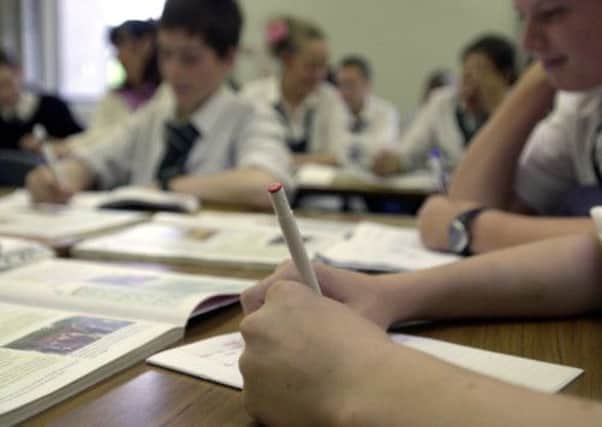Is formal schooling too much for children under seven?


Lis Barton remembers her eldest son’s first day at school. It was also very nearly his last.
Almost instantly, she says, George turned from a happy go lucky four-year-old into a child who could barely raise a smile.
Advertisement
Hide AdAdvertisement
Hide Ad“Depressed is a strange word to describe someone that young, but that’s what he was. When I’d meet him at the school gates I would try my best to be cheery and ask what he’d been up to, but he would just raise his head, look straight at me and say, ‘work, work, work’. Every time my heart used to sink.”
Initially Lis thought it was just a case of settling in and as the term went on George would adjust. When he didn’t, she and her husband took the decision to pull their son out of formal schooling and educate him themselves at their home in York.
“I was lucky in that I wasn’t working and I could home educate. I had no teaching background but I had time and that was what George really needed. When I had my second son, Ralph, I did enrol him in reception class, but I suddenly thought, ‘What am I doing?’, I can look out for my own children.
“At the time I thought I was the only person who thought that way, but over the years I gradually found there were other families doing exactly the same - in the end there were about 100 of us in York.
Advertisement
Hide AdAdvertisement
Hide Ad“I honestly don’t see the benefit of sending children into formal education until they are at least seven, probably eight. I would watch my boys fumbling with their shoelaces and I realised that they didn’t need to spend the best part of the day with a stressed out teacher, what they needed was to be with me.”
Lis is not alone in believing that four or even five-years-olds are too young to be sitting behind desks. This week the Save Childhood Movement – backed by experts across teaching, academia, literature and the charity sector – once again called on the Government to look hard at the current education system which they say focuses too heavily on formal literacy and numeracy at the expense of play.
Their belief is that far from engaging children with learning, it can turn them off education altogether. Instead they said, we should look to a country like Finland, where children don’t start formal education until they are seven.
It’s not the first time, experts have pointed north in the search for a better education model – Sweden is also frequently cited as having a much more child friendly approach to schooling –but as ever the reality is much more complex than simply borrowing the Finnish blueprint.
Advertisement
Hide AdAdvertisement
Hide Ad“Yes, Finland has high standards of literacy and along with South Korea is world-beating when it comes to achievements and qualifications, but should we be aiming for a mirror image? I’m not so sure,” says Chris McGovern, chairman of the Campaign for Real Education.
“Children there may not start formal education until they are seven, but its also a country which is affluent and which has incredibly good pre-school facilities. You can’t just raise the age at which children start school without looking at what comes before.
“I tend to think that a child growing up in a deprived part of inner-city Leeds is probably better in school than out of it and the reality is that in this country both parents work not through choice but out of necessity.
“One thing we could learn from Finland is the belief that the child’s happiness has to be the priority rather than league tables and targets. If we are to achieve that, then we must build more flexibility into the system.
Advertisement
Hide AdAdvertisement
Hide Ad“Free schools and academies are a step forward, but they are still judged against Ofsted inspection criteria. For five to seven-year-olds there are 17 learning goals and that seems rather too many.”
Lis’s two sons are now 14 and 12 and she says they have thrived because of the lack of formality.
“Home education ranges from those who basically recreate school at home to those who eschew any formal teaching and opt instead for what’s known as autonomous learning,” she says. “Like most, I fall somewhere in the middle. We always know what’s on the national curriculum, but we don’t follow it religiously.
“George has just started at an internet school. He logs on at 9.30am every morning and is studying eight GCSEs along with 300 other pupils in real time lesson, but it was his choice to go down that route.
“Like most parents all I want is for my boys to fulfil their potential and I honestly don’t think that would have happened had they been forced into formal education from the age of four.”